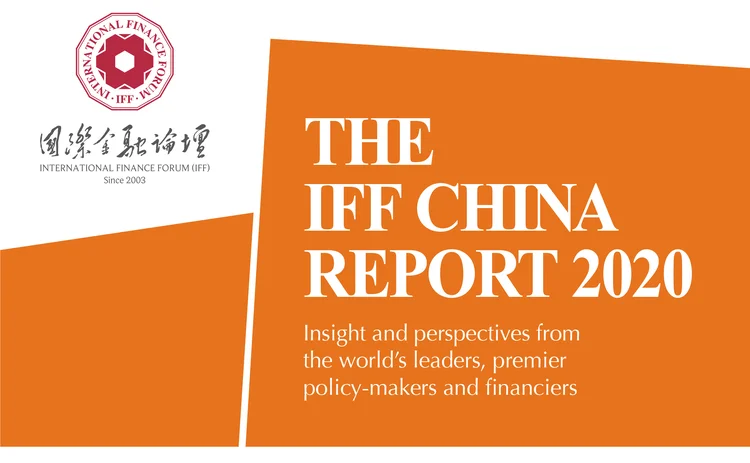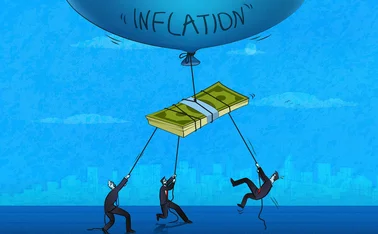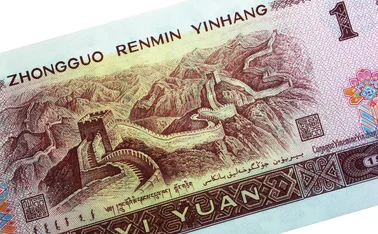
The IFF China Report 2020: Foreword
The importance of international co-operation

The troubled state of US–China trade relations acted as a brake on the global economy for most of last year. A US–China trade deal expected in the first quarter of 2019 failed to materialise, giving way to a ratcheting-up of tariffs and other protectionist measures throughout the year. As the trade dispute lengthened, it had a more lasting effect on global supply chain disruptions, and influenced new economic development plans for China, the US and third parties that engage in trade with both nations.
A ‘phase one’ agreement was finally reached in January 2020. This included assent by China to move away from forced technology transfers and offer foreign companies greater access to Chinese markets, plus a commitment to increase purchases of US manufacturing, energy and agricultural goods and services by US$200 billion over the next two years. The US, meanwhile, cancelled its plans for so-called ‘penalty tariffs’ it had scheduled for $156 billion of Chinese goods and cut the tariffs imposed in September 2019 on $120 billion of these goods from 15% to 7.5%. It also dropped its labelling of China as a ‘currency manipulator’ as part of the deal.
‘Phase two’ of the talks are ongoing. They aim to address issues related to cyber theft and US calls for changes in Chinese law to reinforce agreements reached during the trade agreement. In return, the US has promised to end its punitive tariffs on Chinese goods. These talks may be fraught, particularly when they are linked to issues related to sovereignty and future economic success.
The IFF China Report 2020 offers insight by going behind the headlines. The report focuses on five main themes: financial stability; China’s opening-up; the Belt and Road Initiative (BRI); green finance and fintech; and regional and multilateral co-operation. The IFF China Report 2020 also includes the third annual BRI Survey of central banks, the results of which indicate that central banks still view the BRI as important in promoting global growth. They also see BRI investment as broadly sustainable in relation to other forms of external debt and say protectionist policies have yet to have an impact on BRI membership and investments – but this could change in the future.
By reaching a phase one trade deal, Chinese and US officials have demonstrated they can work together in a constructive manner, and promote an atmosphere for greater trust. The importance of co-operation and trust has once more been brought to the fore by the outbreak of coronavirus (Covid-19). China’s lockdown now appears to be working, although it has come at great sacrifice to its people. Now the inhabitants of Europe, the US and elsewhere face a similar ordeal. Covid-19 knows no borders. Nations can effectively combat the latest threat to global development by sharing data, detailing optimal quarantine techniques and working together on clinical trials and the production of treatments and, hopefully, a vaccine. Multilateral efforts are essential to addressing issues related to illness, poverty and climate risks, and securing a safer and brighter future.
We are privileged and extremely grateful for the support of the global leaders,
policy-makers, finance experts, business leaders, politicians and scholars who have contributed to and supported the publication of the IFF China Report. We hope it provides you with important insights and fresh perspectives.


Only users who have a paid subscription or are part of a corporate subscription are able to print or copy content.
To access these options, along with all other subscription benefits, please contact info@centralbanking.com or view our subscription options here: http://subscriptions.centralbanking.com/subscribe
You are currently unable to print this content. Please contact info@centralbanking.com to find out more.
You are currently unable to copy this content. Please contact info@centralbanking.com to find out more.
Copyright Infopro Digital Limited. All rights reserved.
As outlined in our terms and conditions, https://www.infopro-digital.com/terms-and-conditions/subscriptions/ (point 2.4), printing is limited to a single copy.
If you would like to purchase additional rights please email info@centralbanking.com
Copyright Infopro Digital Limited. All rights reserved.
You may share this content using our article tools. As outlined in our terms and conditions, https://www.infopro-digital.com/terms-and-conditions/subscriptions/ (clause 2.4), an Authorised User may only make one copy of the materials for their own personal use. You must also comply with the restrictions in clause 2.5.
If you would like to purchase additional rights please email info@centralbanking.com







